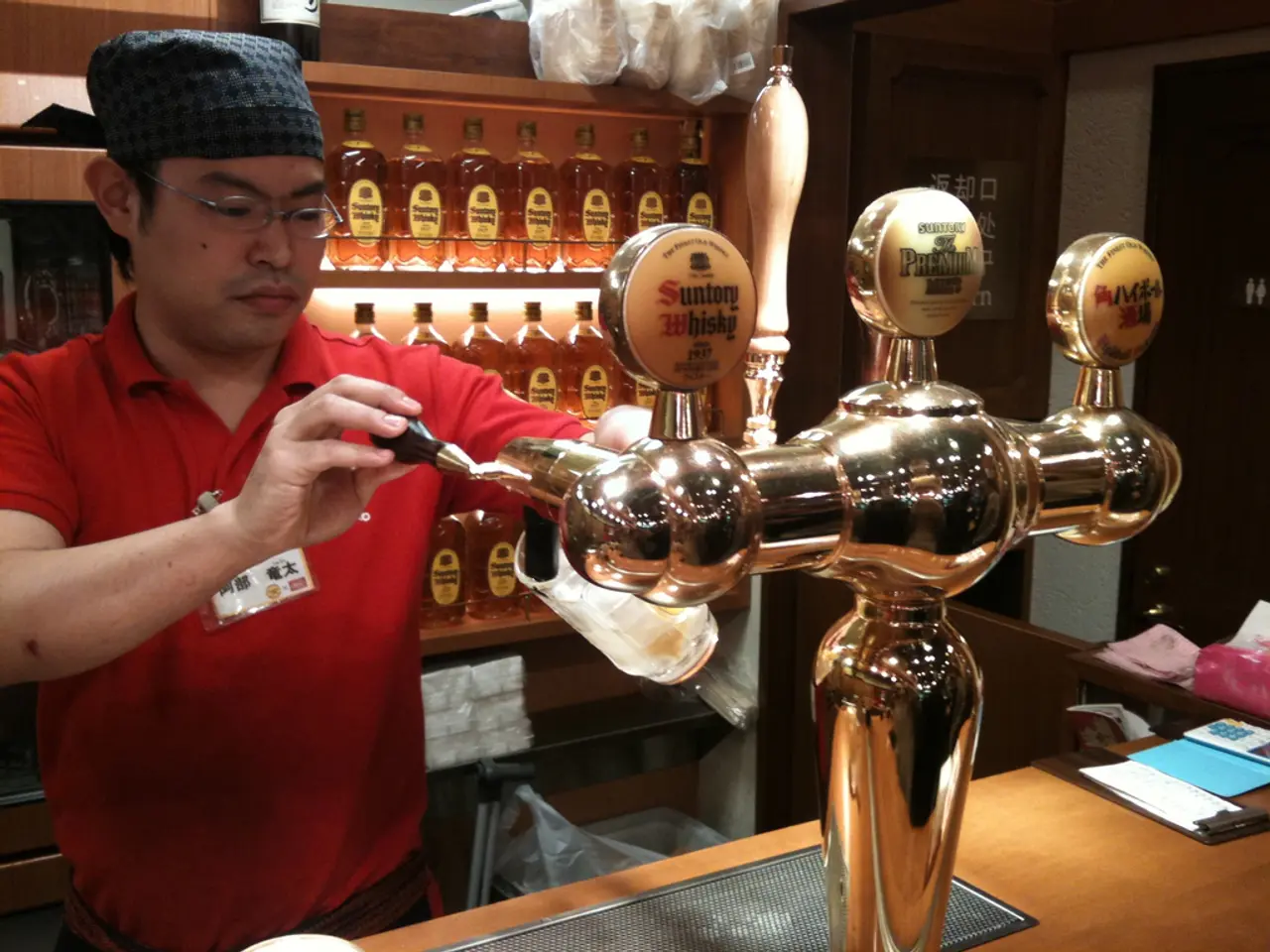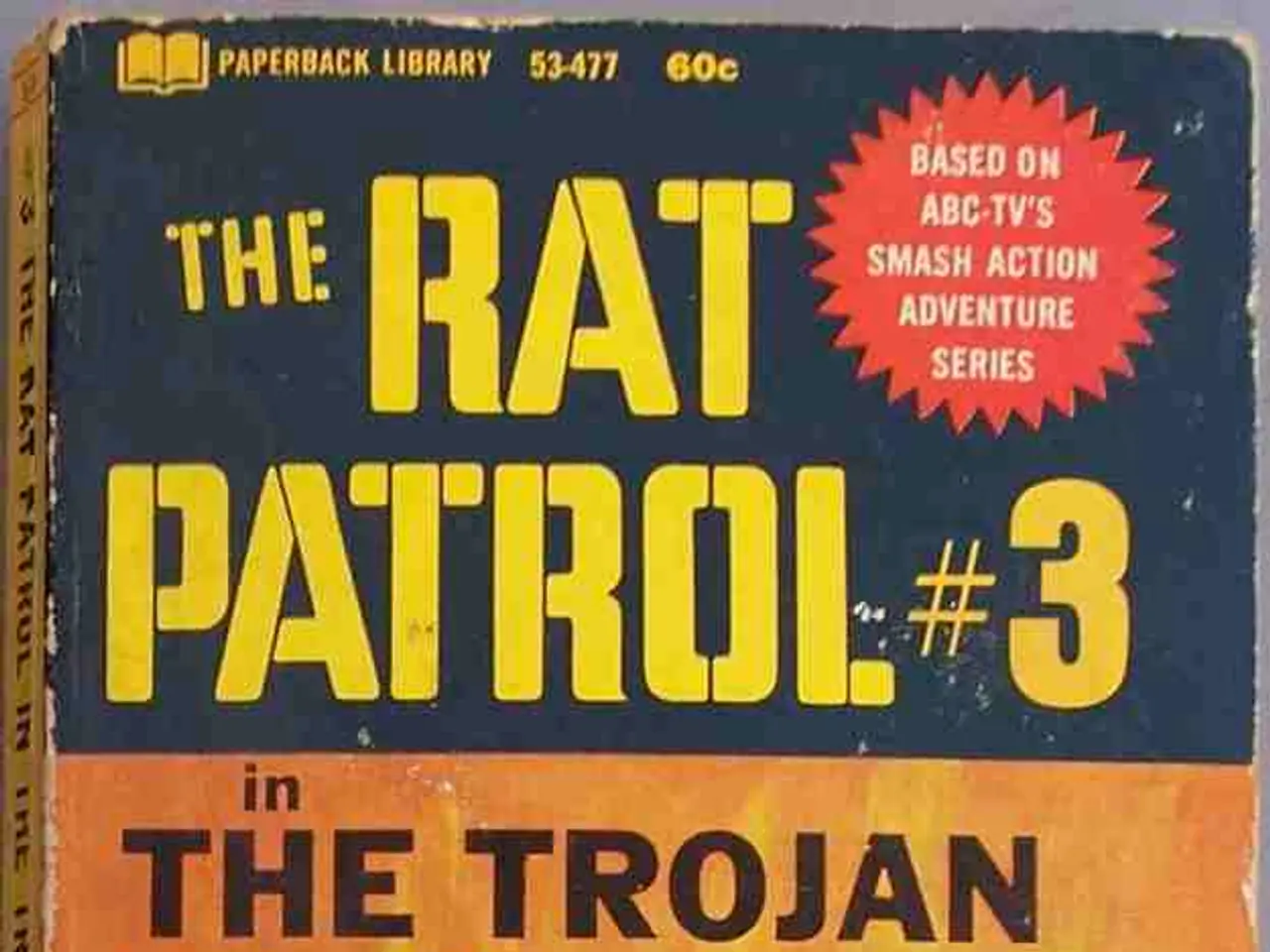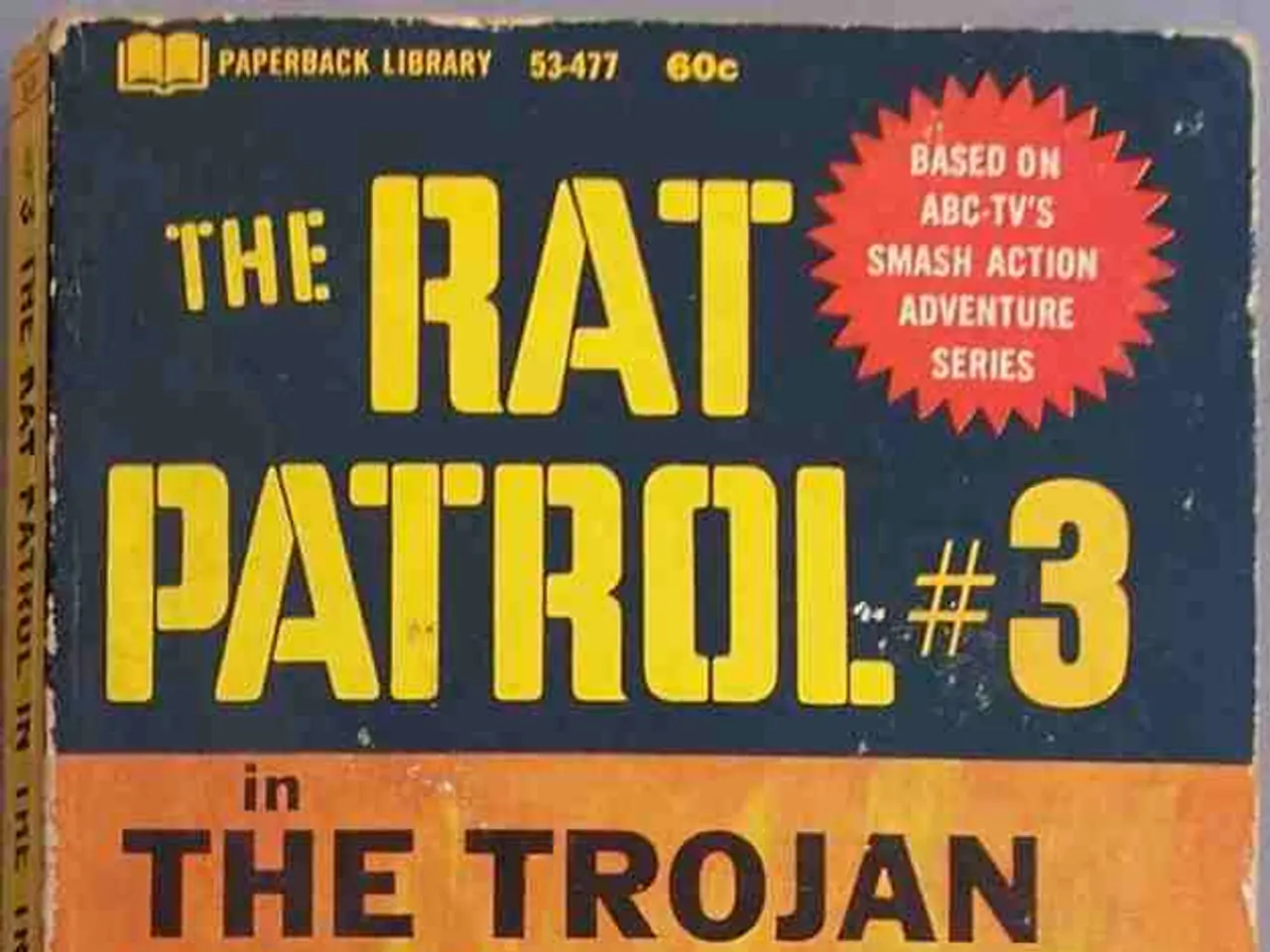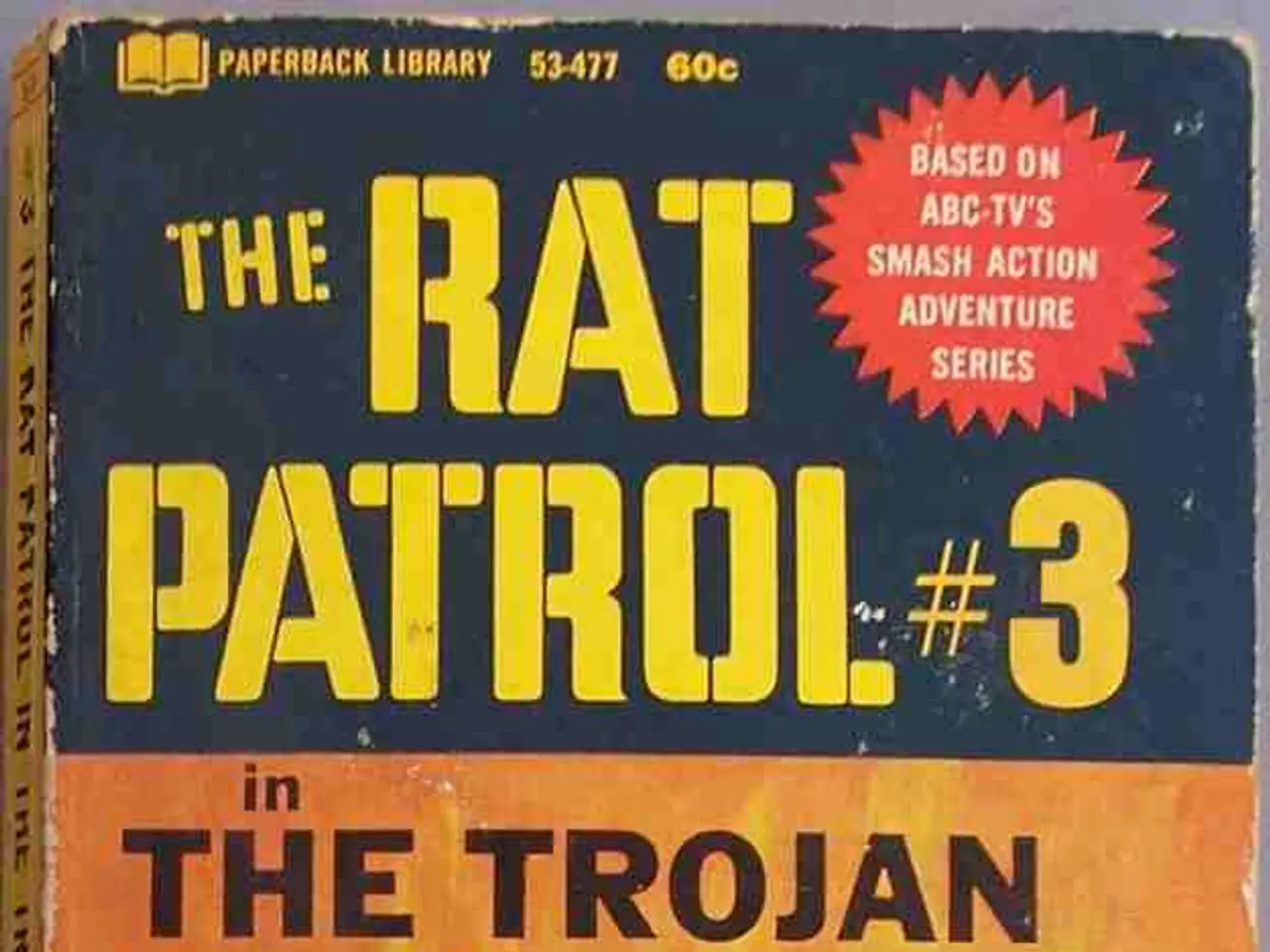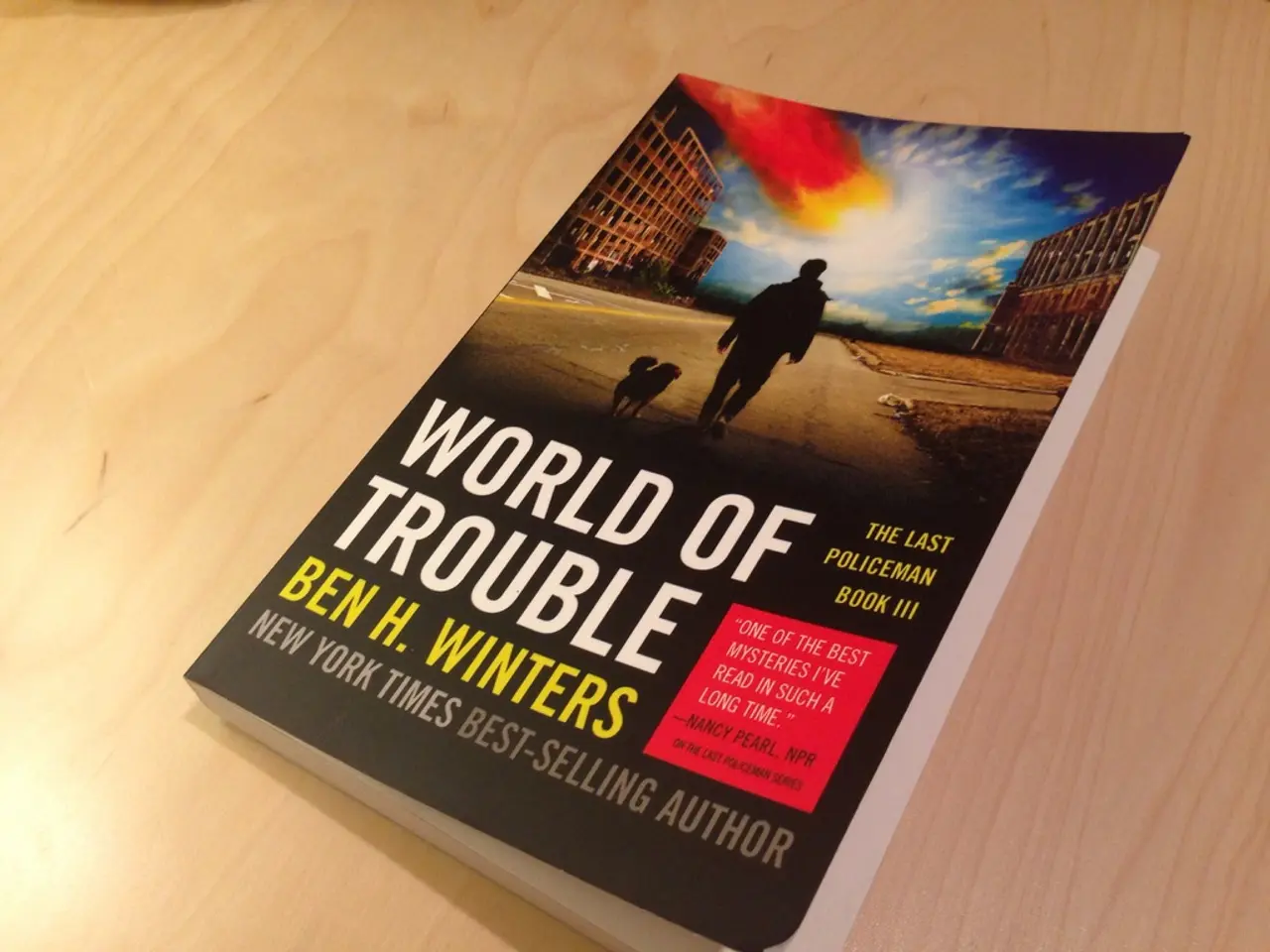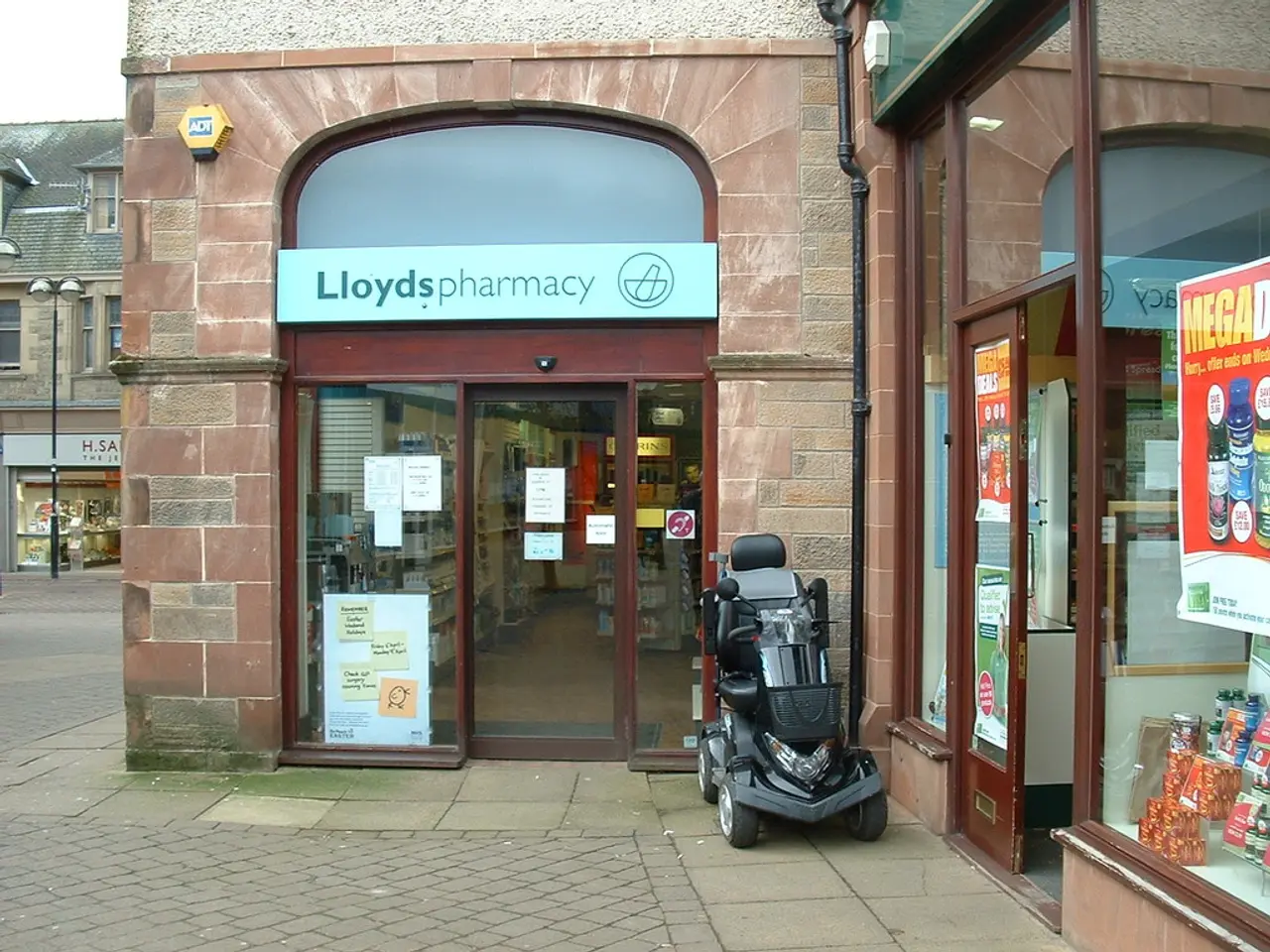Intense atmospheric conditions
In the heart of Düsseldorf, a popular destination for locals and tourists alike, a stay-and-alcohol ban has been enforced in the Old Town and Rhine promenade until June 11th. This measure, aimed at curbing the spread of COVID-19, has sparked debate among city officials and political factions.
The ban, necessary due to the violation of distance and mask rules in crowded areas beyond outdoor dining terraces, has been implemented in collaboration with the city, police, and DEHOGA. Access control to the Old Town, similar to that during the glass ban, was deemed impractical and legally impossible.
Dr. Klaus Göbels, the health department director, has issued a warning about the risk of infection in static, closely packed crowds, especially given the recent cases of the more contagious Indian virus variant. He emphasizes the importance of maintaining hygiene measures.
The city, police, and DEHOGA aim to ensure a relaxing experience in the Old Town's open areas of outdoor dining while adhering to these measures. Exemptions to the ban include queues outside retail stores, gastronomic establishments, and other open facilities.
The ban applies to public streets and paths within the designated area from 8 PM to 5 AM on Fridays, Saturdays, Sundays, and the day before public holidays, and from 8 PM to 1 AM on other weekdays.
The CDU faction leader, Rolf Tups, and his deputy, Andreas Hartnigk, have called for a stronger police presence in the city center, especially on weekends and public holidays. Hartnigk expects consistent enforcement of violations in the city center.
Mayor Keller and police president Norbert Wesseler agree that the state capital requires more police. However, the city's approach has been criticised by Düsseldorf's SPD chairman, Oliver Schreiber, who called it "avoidable and conceptless."
Schreiber argues that the mayor should have spoken to the police and restaurateurs beforehand to prevent tense situations in the Old Town and along the Rhine. He further stated that the mayor, Dr. Keller, should "extinguish a fire that should never have started."
In the broader context, ongoing discussions about more stringent alcohol legislation at the federal level are taking place, with initiatives advocated by Hendrik Streeck, the Federal Commissioner for Drugs and Addiction. However, these are federal-level positions and do not specifically mention Düsseldorf or local COVID-19 measures tied to alcohol consumption outdoors.
Currently, there are no specific search results that detail COVID-19 regulations in Düsseldorf, Germany, regarding alcohol consumption specifically in Old Town and along the Rhine promenade as of August 2025. Further direct local government sources or news reports from Düsseldorf would be needed for precise current information.
The debate about the alcohol ban in the Old Town and Rhine promenade has extended beyond city officials to political factions, as the CDU faction leader, Rolf Tups, and his deputy, Andreas Hartnigk, have called for a stronger police presence in the city center. On the contrary, Düsseldorf's SPD chairman, Oliver Schreiber, questions thecity's approach, arguing for a more collaborative dialogue with the police and restaurateurs to prevent unnecessarily tense situations. Meanwhile, discussions about more stringent alcohol legislation at the federal level are ongoing, but there are no specific regulations detailed for Düsseldorf regarding alcohol consumption in Old Town and along the Rhine promenade as of August 2025.
